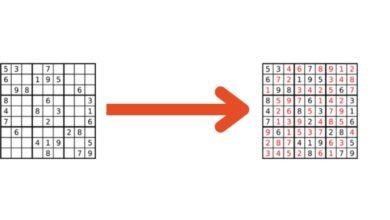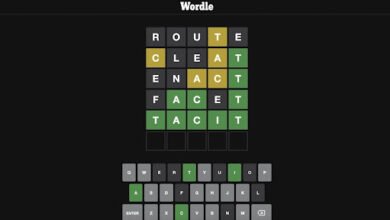
The blockchain world has transformed how we think about finance. Decentralized Finance (DeFi) platforms are at the forefront of this change. Among the blockchains supporting DeFi, Tron stands out for its speed, scalability, and low transaction costs. Tron tokens play a crucial role in powering DeFi applications, offering developers and businesses an efficient way to manage assets and liquidity.
This article explores how Tron tokens are utilized in building DeFi platforms. It also highlights the opportunities and challenges developers face.
Why Tron Tokens are Ideal for DeFi
Tron is a blockchain platform designed for decentralized applications. Its high transaction speed and minimal costs make it a strong choice for DeFi development.
Tron tokens, particularly TRC-20 tokens, are compatible with smart contracts and offer flexibility for developers. These tokens can represent anything—stablecoins, utility tokens, or governance tokens. Their adaptability is key in driving DeFi growth.
Unlike Ethereum, Tron avoids congestion issues by using its Delegated Proof-of-Stake (DPoS) consensus mechanism. This ensures faster transactions and a seamless user experience.
Opportunities in Building DeFi Platforms with Tron
1. Cost Efficiency
Tron’s low fees reduce barriers for users and businesses. In DeFi, transactions like staking, swapping, or liquidity provision must be cost-effective. Tron excels in this area, attracting developers looking for sustainable solutions.
2. High Transaction Speed
DeFi platforms rely on real-time interactions. Tron’s network can handle thousands of transactions per second. This speed ensures smooth operations for lending protocols, decentralized exchanges (DEXs), and other DeFi apps.
3. Wide Adoption of TRC-20 Tokens
The TRC-20 standard ensures compatibility with Tron’s ecosystem. This standard supports stablecoins like USDT and algorithmic tokens. Developers can use these tokens for payments, rewards, or governance in DeFi platforms.
4. Cross-Chain Compatibility
Tron bridges make it easy to integrate assets from other blockchains. This allows DeFi platforms to access liquidity from Ethereum or Binance Smart Chain. With cross-chain features, developers can build platforms that connect multiple blockchain ecosystems.
5. Support from the Tron Ecosystem
Tron’s robust ecosystem provides tools for token creation, wallet integration, and decentralized storage. These tools simplify the development of DeFi platforms. A reliable infrastructure attracts businesses seeking scalable solutions.
Applications of Tron Tokens in DeFi
1. Staking and Yield Farming
Tron tokens are commonly used in staking protocols. Users lock their tokens to earn rewards, while the locked funds provide liquidity for the platform.
Yield farming on Tron offers similar benefits. Users can maximize returns by providing liquidity to DeFi protocols.
2. Decentralized Exchanges (DEXs)
DEXs built on Tron utilize TRC-20 tokens for seamless trading. Low fees and fast transactions improve the user experience. These exchanges attract users looking to swap tokens efficiently.
3. Lending and Borrowing Platforms
DeFi lending platforms allow users to earn interest by lending Tron tokens. Borrowers can access funds without traditional intermediaries. Smart contracts ensure secure and automated transactions.
4. Stablecoins in DeFi
Stablecoins on Tron provide stability in volatile markets. USDT-TRC20 is a widely used stablecoin, offering fast and low-cost transactions. DeFi platforms leverage stablecoins for payments, savings, and liquidity.
5. Governance Mechanisms
Governance tokens on Tron empower users to vote on platform upgrades or policies. These tokens enhance decentralization, giving the community a voice in decision-making.
Challenges in Building DeFi Platforms with Tron
While Tron offers several benefits, developers must navigate certain challenges to build effective platforms.
1. Competition from Established Blockchains
Ethereum remains the dominant blockchain for DeFi. Its large developer community and established user base are hard to rival. Tron must consistently innovate to stay competitive.
2. Regulatory Uncertainty
DeFi platforms operate in a rapidly changing regulatory landscape. Legal issues related to token issuance, user privacy, or compliance can pose challenges. Developers must stay updated on regulations to avoid penalties.
3. Security Concerns
DeFi platforms are vulnerable to hacks or exploits. Developers building on Tron must prioritize security audits for smart contracts. Any breach can harm user trust and financial stability.
4. Dependence on TRC-20 Token Standards
While TRC-20 tokens are efficient, they require adherence to specific standards. This limits customization for developers seeking unique solutions.
5. User Adoption Barriers
Although Tron’s low fees are appealing, its user base may not match Ethereum’s in size. Convincing users to switch platforms is a challenge. Marketing and education campaigns are necessary to attract a wider audience.
Steps to Develop a DeFi Platform with Tron Tokens
1. Define the Use Case
Start by identifying the purpose of your platform. Will it be a DEX, lending protocol, or staking platform? The use case will determine the features and token requirements.
2. Create Tron Tokens
Develop TRC-20 tokens for your platform. These tokens can represent governance, rewards, or stable assets. A Token Development Company can assist in this process.
3. Build Smart Contracts
Smart contracts automate key functions like transactions, staking, or interest calculations. Ensure they are thoroughly tested to avoid bugs or vulnerabilities.
4. Integrate User Wallets
Wallet integration allows users to interact with your platform. TronLink is a popular wallet for TRC-20 tokens. It supports seamless transactions and staking features.
5. Ensure Cross-Chain Compatibility
Incorporate Tron’s bridges to allow asset transfers from other blockchains. This feature increases liquidity and attracts a broader audience.
6. Focus on Security
Hire experts to audit your smart contracts and code. Implement robust security measures to protect user funds and data.
7. Launch and Market the Platform
After development, launch the platform with a clear marketing strategy. Use social media, forums, and collaborations to reach potential users. Highlight the benefits of your DeFi platform.
Why Choose a Token Development Company?
A Token Development Company can simplify the process of building DeFi platforms. They offer expertise in creating Tron tokens, developing smart contracts, and integrating DeFi features.
These companies provide end-to-end solutions, ensuring your platform is ready for launch. Their experience minimizes errors and speeds up development.
The Future of DeFi with Tron Tokens
Tron’s ecosystem is evolving rapidly. With advancements in scalability and interoperability, Tron is well-positioned to support next-generation DeFi platforms.
Developers who leverage Tron tokens can benefit from its efficiency and growing user base. By addressing challenges and seizing opportunities, they can create impactful DeFi solutions.
Conclusion
Building DeFi platforms with Tron tokens opens doors to innovation and growth. Tron’s cost efficiency, speed, and robust ecosystem make it a strong foundation for decentralized applications.
However, developers must navigate challenges like security, competition, and user adoption. Partnering with a Token Development Company can streamline the process and improve success rates.
The DeFi space is expanding, and Tron tokens are becoming integral to this evolution. With careful planning and execution, businesses can harness the potential of Tron to build transformative DeFi platforms.



